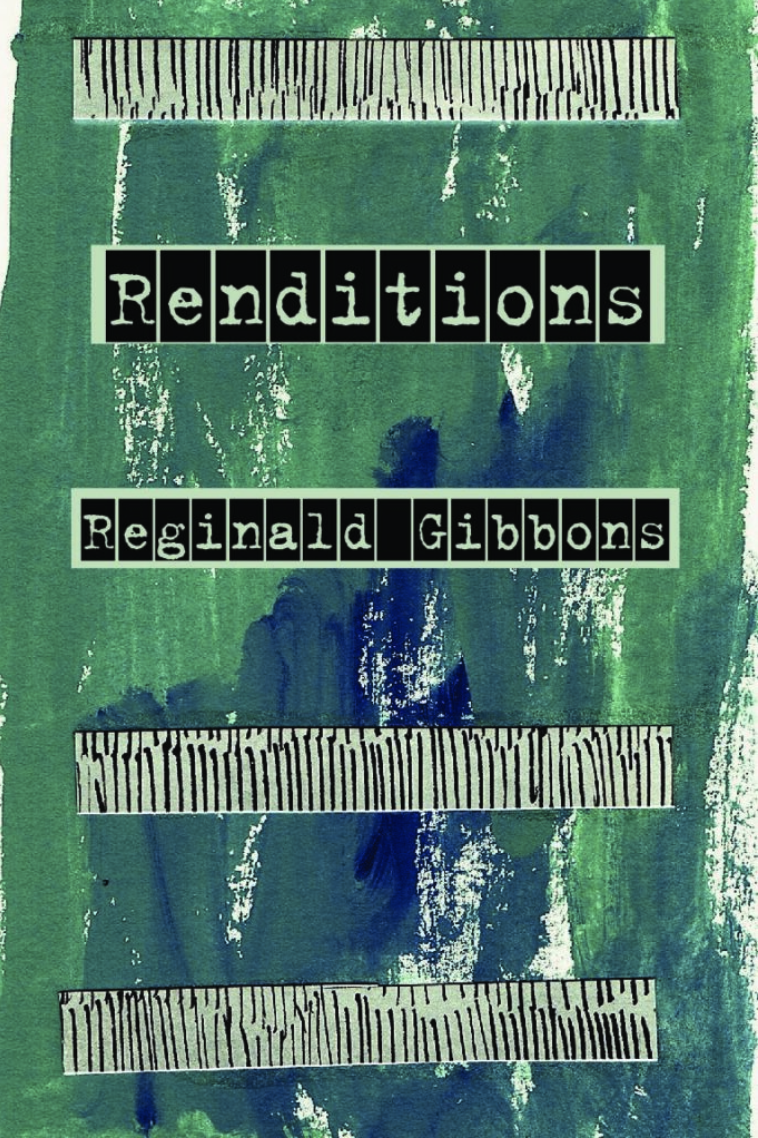
paper • 116 pages • 16.95
ISBN-13: 978-1-945588-73-0
Pub Date: February 15, 2021
In Renditions, Reginald Gibbons conducts an ensemble of poetic voices, using the works of a varied, international selection of writers as departure points for his translations and transformations. The collection poses the idea that all writing is, at least abstractly, an act of translation, whether said act “translates” observation into word or moves ideas from one language to another. Through these acts of transformation, Gibbons infuses the English language with stylistic aspects of other languages and poetic traditions. The resulting poems are imbued with a sense of homage that allows us to respectfully reimagine the borders of language and revel in the fellowship of idea sharing. In this tragicomedy of the human experience and investigation of humanity’s effects, Gibbons identifies the “shared underthoughts that we can (all) sense:” desire, love, pain, and fervor.
“What Remains”
Yes, bread that’s poisoned. And not even one sip of air.
How hard it is for the wound of life to be cured.
Joseph himself, sold to Egypt as a slave,
could not have been more heavily grieved.
Then under the sky-swarm of stars, Bedouins come.
They quiet their horses. Then in turn, with eyes closed,
each invents some chanted fragment of their day
of epic nothing, that only brought them boredom,
for among such riders, little’s needed to inspire—
in the dunes, one man lost a quiver of arrows,
others traded some geldings for a mare—events are
only a mist that thins and disappears.
But if—if—such songs are sung out to the end
with all the heart, with all the breath in the lungs,
almost everything vanishes . . . And what remains
is the desert vastness, the stars, the one who sings.
–Osip Mandelshtam (1913)
If poetry is our chief means of breaking bread with the dead, as Auden suggested, then Reginald Gibbons’ Renditions is the best kind of feast you can imagine. Here Gibbons speaks to Mandelshtam about heaviness and tenderness, those two sisters; here we watch him read aloud the great dead poets in his own voice while gusts of rain splatter against our glass hearts, like happiness. Why? Because Gibbons is a master of variousness, he excels in many different tonalities at once, as if each is a different tongue. Though his favorite, perhaps, is the language of nuance and delicacy, of lyric precision. So his Vallejo teaches us fire by walking, impossibly, down the same long street with a loaf of bread, for a hundred years now, and his Cernuda teaches us, tenderly, to see that what is mysterious is in fact claritas: ‘the way two unnoticed leaves can be / proof of the world’s breath.’ This is a genuinely gorgeous, generous collection: across time and space, this one-man chorus sings the way Pasternak recommended when he whispered that poets should go across the borders, smashing those borders.
This collection might also be called ‘Liberties’: Reginald Gibbons has taken passionate liberties with the poems he loves, from many languages and many centuries. In a devotional ventriloquism, he throws his voice into the voices of Wang Wei, Sophocles, Pindar, Tsvetaeva, Mandelshtam, Neruda, and a host of others. Ancient themes of justice and injustice resonate through his modern forms, and the volume gathers in the final ode to an extended, eloquent, and furiously contemporary curse on a recognizable tyrant. For Reginald Gibbons, poetry is collective: he has turned his debts into song.
Reginald Gibbons’s new book showcases a master at his best. With the flair of an old school jazz arranger and the discipline of a classical composer, he revisits the classic work of other poets and renders them fresh and with new histories, new ambitions. With the same skill he builds new poems of his own that when juxtaposed with the old create a new standard song book – at once familiar and new; at once classical and innovative; at once respectful and irreverent. Elegant, felicitous and lyrical, Reginald Gibbons adds a new beauty to his already impressive ouvre.
…This book is full of deep respect for poets and the languages and cultures from which it borrows, emphasizing the shared connections in poetic tradition, even as it reimagines that tradition.